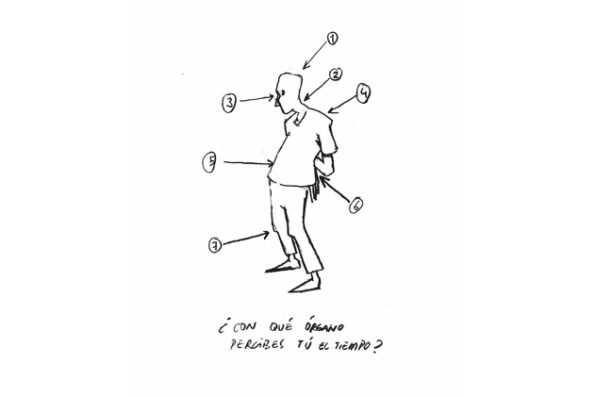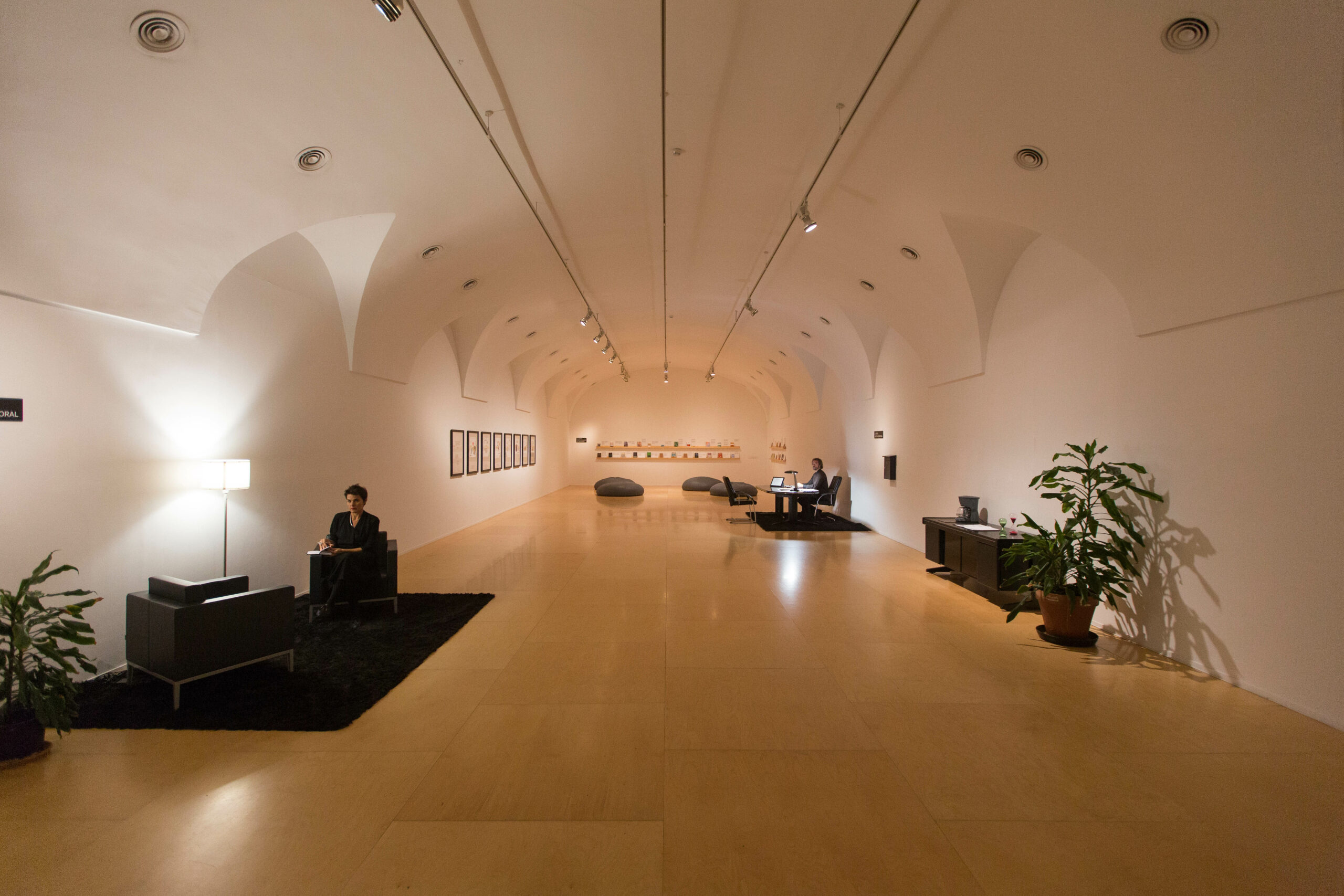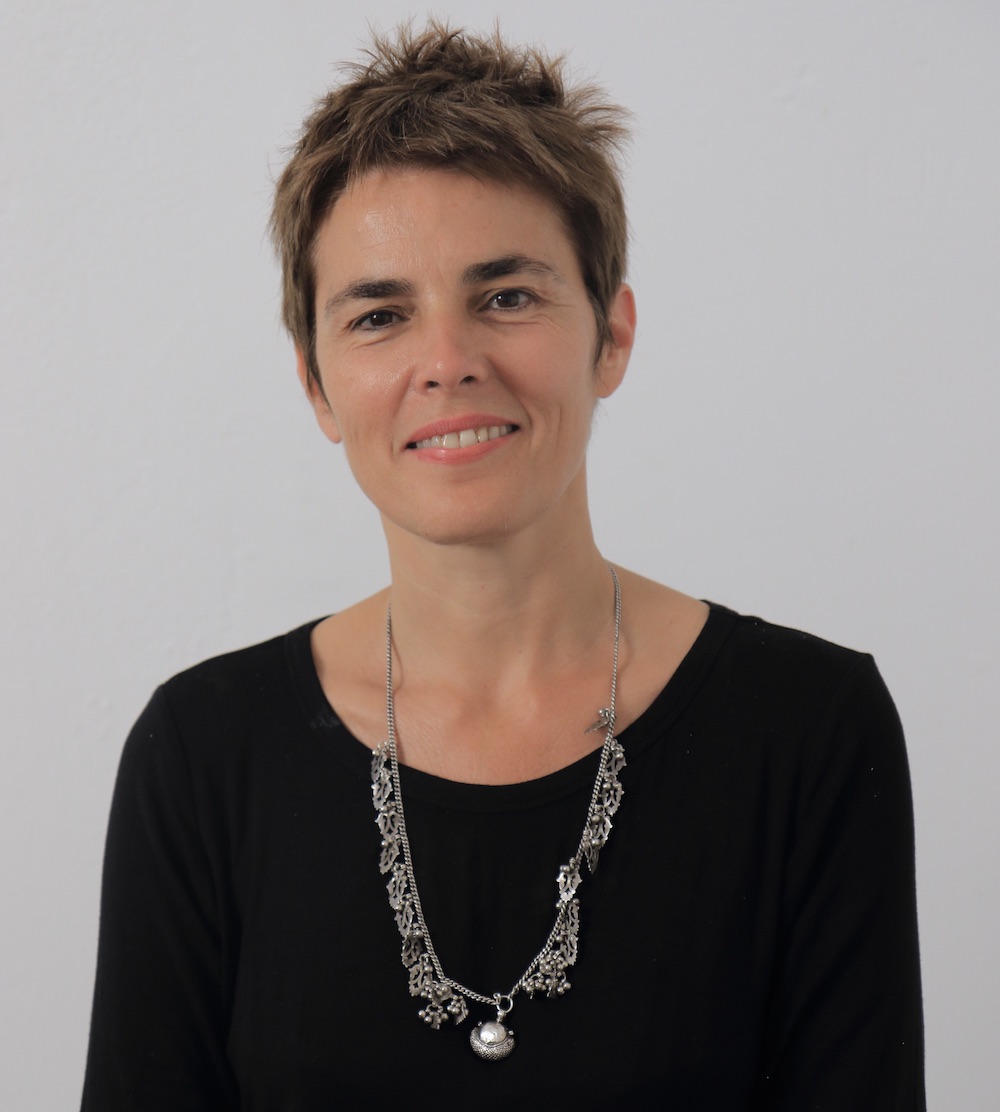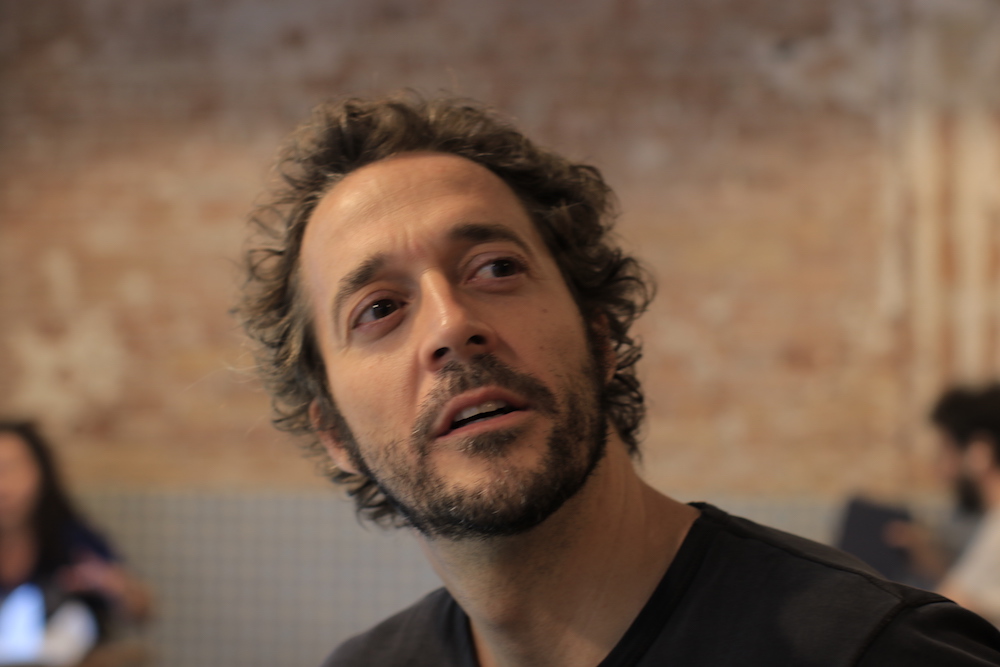Search
To search for an exact match, type the word or phrase you want in quotation marks.
A*DESK has been offering since 2002 contents about criticism and contemporary art. A*DESK has become consolidated thanks to all those who have believed in the project, all those who have followed us, debating, participating and collaborating. Many people have collaborated with A*DESK, and continue to do so. Their efforts, knowledge and belief in the project are what make it grow internationally. At A*DESK we have also generated work for over one hundred professionals in culture, from small collaborations with reviews and classes, to more prolonged and intense collaborations.
At A*DESK we believe in the need for free and universal access to culture and knowledge. We want to carry on being independent, remaining open to more ideas and opinions. If you believe in A*DESK, we need your backing to be able to continue. You can now participate in the project by supporting it. You can choose how much you want to contribute to the project.
You can decide how much you want to bring to the project.

Instituto del Tiempo Suspendido, Raquel Friera & Javier Bassas
We proposed to our accomplices and to all new and recent acquaintances who share the forms and politics of the ITS, an original, poetic and political question, one which deals with the way we live time. It is a question (which you can ask yourself) that sought and still seeks to activate temporal perception in an individual and bodily way. A direct question: With what organ do you perceive time? Here “organ” should be understood in the scientific sense (from the eyes to the heart, from the brain to the stomach) or the part of your body that metaphorically perceives the passing of time, that gives rhythm to your day and to your life beyond clock time. [1]Any reader who wishes to do so can send us their response to the following address: institutodeltiemposuspendido@gmail.com. It will be a pleasure to have your contribution in the Organic Catalogue of … Continue reading
We invited people to respond from their own field, whether it be science, philosophy, poetry or the arts, and from the most everyday aspect to the most transcendent. The aim is to explode time and to confirm the foundational hypothesis that underpins the thinking of the Institute of Suspended Time: the existence of infinite times and the equality of all times, that is, the chrono-diversity that contains and sustains our lives. Our chrono-political hypothesis is only verified, however, by putting it into practice, by performing it.
This project is based on our surprise caused by a line in Thomas Mann’s novel The Magic Mountain (1924):
Today I am very lucid. What is time? asked Hans Castorp, and he bent the tip of his nose with his finger so hard it turned white, bloodless. Can you tell me? We perceive space with our senses, through sight and touch. Good! But, through which organ do we perceive time? Can you tell me?[2]Thomas Mann, The Magic Mountain, 1924
Thomas Mann inspired us to reflect on the organ of time, but the problem was in his perspective of the question. We do not want to delve into the metaphysics of time (what is time?), nor do we seek to understand objectively and scientifically what is “our” human organ that perceives time (in the original, “Aber welches ist denn unser Zeitorgan?”). We do not want to understand how humans “we perceive” time, as the translated text says. The question we ask at the Institute of Suspended Time is instead aimed at the mundane and emancipatory, a reference to the idio-rhythm that Roland Barthes analyzed in his seminar at the Collège de France in 1976-77 (“Comment vivre ensemble?”[3]Audio available at: http://www.roland-barthes.org/comment_vivre_ensemble1.html.) and applying that idio-rhythm to all the doors of bodies. That is, through a reflection about time organs we wanted to bring out the temporal rhythm of each person, we wanted to enhance the chrono-diversity of each person, of each timing body, in the face of the temporal regime of power that homogenizes us within techno-life, digital chronometry, and anxious productivity. As a singular question for each person, a poetic and political question, we want it to resonate in each and every body (both masculine and feminine) to see how we incorporate time. With which organ do you perceive time?
Because of the difficulty of the question, the surprise it provokes and the ambiguity that permeates the word “organ,” the responses we received in this first survey were surprisingly different, at times direct, at times delirious, practical or poetic. They are certainly very diverse responses, as is appropriate, in any case, to our attempt to activate the chrono-diversity that can help us to emancipate ourselves from the temporal regime of current power, that is, techno-capitalist chrono-normativity. However, we would like to establish at least one general distinction and then, immediately afterwards, propose some particular reflections on the details of these responses and their contribution to the understanding and practice of chrono-diversity.
Reading the responses that we received, there is one important general distinction. In its different parts and with its possible symptoms, the body can appear in at least two ways, either as painfully subject to the chrono-normativity of the temporal regime in which we live, or as an emancipated subject that confirms the hypothesis of chrono-diversity.
As if subject to chrono-normativity, some responses describe the body as painfully penetrated by a chronometric temporality that is imposed on it and does not correspond to it. Consequently, the forms of imposition of this chronometric pain are toxic, they are pathologies of chrono-normativity that traverse the entire body. This is especially true in the responses of Clara Laguillo, Víctor Rico and Marina Garcés, among others, who lament how the body cannot, cannot stop, we cannot stop, and how different organs of our body (racing heart, tight and painful stomach, cervical and lumbar, and a long etcetera) suffer the accelerating temporality of the chrono-disciplinary tools of techno-capitalism. The need to be in many places and do many things, the impatience that dizzies us, the precariousness that turns us into zombies, the productivist wheels that mechanize our body and exhaust it with the most painful pain, the most impotent impotence, until we burn out or, as that poet said, “here I burn and in this present moment I die.”
We also received other responses in this first survey of the Organic Catalogue of Time that no longer describe pain and painful chrono-normativity but rather the chrono-diversity that we spoke of at the beginning as a common chrono-political condition. In this way, a bodily emancipation from the temporal regime of power is activated. This is not a simple activation, obviously, but rather a very hard battle that must be fought and that is often lost. The responses of Javier Casado, Laura Llevadot and Núria Nia, among others, describe this struggle between chrono-normativity and its chrono-diverse emancipation by means of various organs and strategies: becoming a “fugitive from time”, beating “wings” in the time of dance, the erotic, writing and thinking, or by deploying a “universal cadence” with one’s fingers, as their respective texts tell us.
This chrono-diverse force of bodies is also deployed in other responses, so powerful as to make us change the meanings and teachings of science. They are informed, referenced responses, which address scientific laws and data to activate other meanings: from the rotation of the earth and how it is slowing down, as Mabel Tapia tells us, to thermodynamics and the traces it leaves on matter, as Agustín Fernández Mallo suggests. Their responses begin to unfold reflections on exteroceptors and the relational dimension of time, chrono-diverse reflections that illuminate scientific parameters in a different way. Liberation through the best science, science that is not responsible for our worst temporal misfortunes.
Freed from bodily and scientific chrono-normativity, we have also received a large number of responses that give free rein to an intimate perception of time through the body. There and then, in these other moments, the body performs chrono-diversity as a common temporal condition and carries it out by incorporating it: its parts and organs are activated to perceive time in another way. For example, the heart as a variable time of daily feelings or the stomach as the seat of the ups and downs of energy each day (two participants who prefer to remain anonymous). They are also the eyes that are in rhythm with solar time and its light variations (Toni Amengual) or that, in an exchange of glances, encompass an intergenerational eternity beyond the present, past and future (Emilia García Castro). The poetics of the skin has also burst in against the temporal, productivist consensus: the shots of the still, eroticized faces in Bergman’s film A Summer with Monica (as proposed by Beatriz Escudero); skin and pussy as Zeitorgan that activate other temporal dimensions (in Amparo Lasén’s text); the micromillimeter scalp skin that inexorably grows every day, in front of the mirror, a poetic and devilish alopecia (Marc Caellas); and pores that seek and activate other times.
So give yourself some time and then answer the question it yourself: you are here, looking at yourself in the mirror, not just your face but observing your entire body, and so you see and feel all its possibilities of temporal emancipation. You are alive because of chrono-diversity and, perhaps, that can lead us poetically to a certain a-temporality. We don’t know yet (we confess) and we will have to investigate it further (we admit), and that is precisely what the last responses sent to us by Judy Wajcman and Boroka Bo seem to indicate:
… I look in the mirror, time looks back. I am time, time is written on my face and I don’t know her language. We are timeless.
***
This first report is the first manifestation, provided by Clara Laguillo and Núria Nia for A*DESK, of a larger project. Sooner or later, or perhaps it is already happening, the Institute of Suspended Time will transform this Organic Catalogue of Time into a book and a sound installation. You can send us your answer, we are waiting for it. There are so many, many, many times to incorporate.
[Featured Image: Victor Rico. Institute of Suspended Time. Drawing]
| ↑1 | Any reader who wishes to do so can send us their response to the following address: institutodeltiemposuspendido@gmail.com. It will be a pleasure to have your contribution in the Organic Catalogue of Time, which will take different forms and formats in new (in)actions of the ITS. |
|---|---|
| ↑2 | Thomas Mann, The Magic Mountain, 1924 |
| ↑3 | Audio available at: http://www.roland-barthes.org/comment_vivre_ensemble1.html. |



"A desk is a dangerous place from which to watch the world" (John Le Carré)